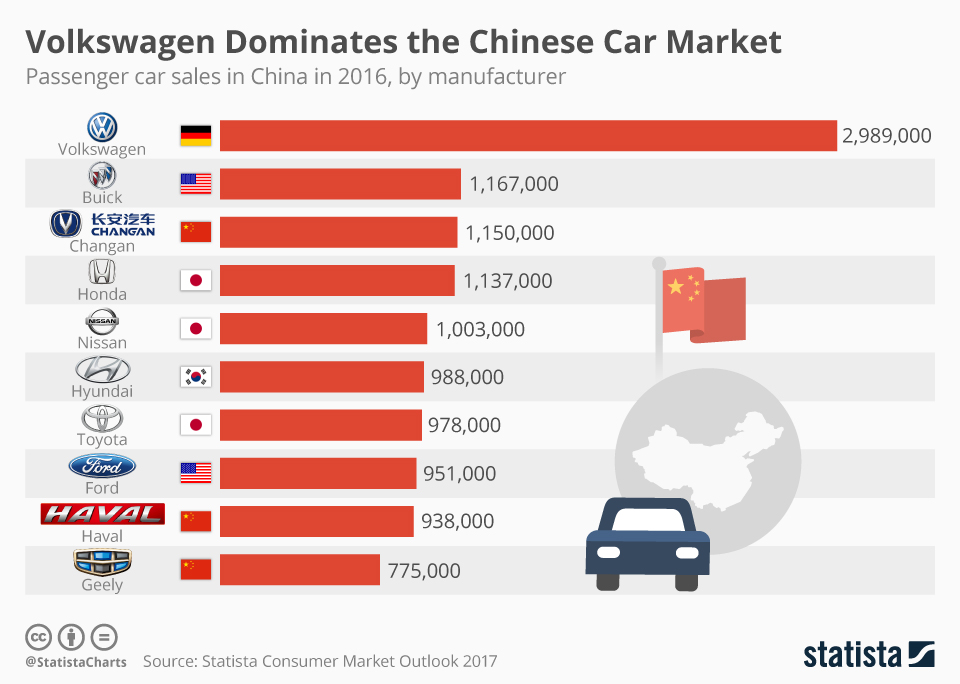The Trump Administration's Influence On European AI Policy

Table of Contents
Transatlantic Trade Tensions and AI Development
The Trump administration's imposition of tariffs and its engagement in trade disputes with the European Union created significant headwinds for transatlantic collaboration in AI. These trade tensions directly impacted European AI companies' access to US markets and crucial technologies.
-
Impact on data flows and cross-border collaborations: Tariffs and trade restrictions hindered the free flow of data, a critical resource for AI development and deployment. This hampered collaborative research projects and limited the ability of European companies to access US datasets for training their AI algorithms. The uncertainty created by these trade wars also chilled investment in joint ventures.
-
Effects on investment in AI research and development: The threat of trade sanctions and the overall climate of uncertainty discouraged investment in AI research and development involving US-based partners. European companies became more hesitant to collaborate with American firms, leading to a slowdown in innovation across the Atlantic.
-
Increased focus on EU technological autonomy: The trade tensions served as a catalyst for the EU's ambition to foster technological independence and reduce its reliance on US technology. This led to increased investment in domestic AI research and development, aimed at creating a more self-sufficient and competitive European AI ecosystem.
For example, the imposition of tariffs on certain technologies crucial to AI development forced European companies to seek alternative suppliers, often within the EU, accelerating the push for European technological self-reliance. This accelerated development of homegrown solutions and reduced dependence on US technology.
Differing Approaches to AI Regulation
A stark contrast existed between the Trump administration's generally hands-off approach to AI regulation and the EU's more proactive and regulatory stance. This divergence significantly shaped the trajectory of AI policy on both sides of the Atlantic.
-
Focus on data privacy (GDPR vs. US approach): The EU's General Data Protection Regulation (GDPR), with its stringent data privacy provisions, stands in sharp contrast to the US's more fragmented and less comprehensive approach. This difference created challenges for transatlantic data sharing, particularly impacting AI development, which relies heavily on large datasets.
-
Emphasis on ethical considerations and AI bias: The EU placed a strong emphasis on addressing ethical concerns surrounding AI, including algorithmic bias and transparency. The Trump administration, however, focused less on these ethical considerations in its AI policies, creating a significant divergence in regulatory priorities.
-
Discussion of regulatory frameworks like the AI Act: The EU's proposed AI Act aims to establish a comprehensive regulatory framework for AI systems, covering a wide range of applications and addressing various risk levels. This proactive approach, in contrast to the US's more laissez-faire attitude, highlights the differing philosophies towards AI governance.
The lack of federal-level AI regulation in the US, compared to the EU's comprehensive approach exemplified by the AI Act, created a significant regulatory divergence that impacted both cross-border data flows and the development of AI systems designed to comply with differing regulatory standards.
The Impact on International AI Collaboration
The Trump administration's withdrawal from or disengagement with several international agreements and multilateral collaborations significantly affected European efforts in building global AI partnerships.
-
Reduced US participation in global AI initiatives: The Trump administration's "America First" approach led to a reduction in US participation in international AI initiatives, weakening collaborative efforts to establish global norms and standards for AI development.
-
Strengthened ties between EU and other global players (e.g., China, Canada): The reduced US engagement in global AI governance created an opportunity for the EU to forge stronger partnerships with other global players, including China and Canada, in areas such as AI ethics and data governance.
-
Focus on building independent AI ecosystems: The reduced reliance on US collaboration propelled the EU to focus on developing its independent AI ecosystems, bolstering its technological sovereignty.
For example, the US withdrawal from the Paris Agreement indirectly impacted AI collaborations related to climate change and environmental data, pushing the EU to seek alternative partnerships to address shared environmental challenges using AI technology.
National Security Concerns and AI
The Trump administration's strong emphasis on national security significantly influenced European perspectives on AI development and deployment, especially concerning data security and potential threats.
-
Increased scrutiny of foreign investment in European AI companies: The focus on national security concerns led to increased scrutiny of foreign investment in European AI companies, particularly those with ties to countries considered geopolitical rivals.
-
Focus on securing critical AI infrastructure: European countries heightened their focus on securing their critical AI infrastructure, implementing measures to protect against cyberattacks and data breaches.
-
Development of national AI strategies to counter perceived threats: The perceived threat from other global powers spurred the development of national AI strategies, aiming to enhance national competitiveness and ensure the security of their AI systems.
This increased focus on national security amplified the importance of data protection and cyber security, leading to stricter regulations and a more cautious approach to international AI collaborations, particularly with nations perceived as posing a security threat.
Conclusion
The Trump administration's policies – encompassing trade disputes, differing regulatory approaches, and impacts on international collaboration – significantly shaped the landscape of European AI policy. The focus on "America First" inadvertently strengthened the EU's resolve to pursue technological autonomy and independent AI development. The resulting regulatory divergence and the shift towards a more self-reliant approach to AI innovation are likely to have lasting implications for the transatlantic relationship and the global AI landscape. Further research into the Trump Administration European AI Policy is crucial to understanding the ongoing evolution of AI regulation and global technological competition. Analyzing the long-term effects of these policy differences will be essential for navigating the future of Artificial Intelligence on both sides of the Atlantic.

Featured Posts
-
 Ahmed Hassanein An Improbable Journey To The Nfl Draft
Apr 26, 2025
Ahmed Hassanein An Improbable Journey To The Nfl Draft
Apr 26, 2025 -
 Worlds Tallest Abandoned Skyscraper Construction To Restart After 10 Year Hiatus
Apr 26, 2025
Worlds Tallest Abandoned Skyscraper Construction To Restart After 10 Year Hiatus
Apr 26, 2025 -
 Chinas Automotive Industry Growth Challenges And Future Prospects
Apr 26, 2025
Chinas Automotive Industry Growth Challenges And Future Prospects
Apr 26, 2025 -
 Exclusive Access To Elon Musk Investments A High Return Side Hustle
Apr 26, 2025
Exclusive Access To Elon Musk Investments A High Return Side Hustle
Apr 26, 2025 -
 Navigate The Private Credit Boom 5 Dos And Don Ts For Job Seekers
Apr 26, 2025
Navigate The Private Credit Boom 5 Dos And Don Ts For Job Seekers
Apr 26, 2025
Latest Posts
-
 The Future Of Design Microsofts Chief Designer On Ais Impact
Apr 27, 2025
The Future Of Design Microsofts Chief Designer On Ais Impact
Apr 27, 2025 -
 Microsofts Design Vision Humanity In The Age Of Artificial Intelligence
Apr 27, 2025
Microsofts Design Vision Humanity In The Age Of Artificial Intelligence
Apr 27, 2025 -
 T Mobile To Pay 16 Million For Data Breaches Spanning Three Years
Apr 27, 2025
T Mobile To Pay 16 Million For Data Breaches Spanning Three Years
Apr 27, 2025 -
 Designing The Future Microsofts Design Lead On Ai And Human Creativity
Apr 27, 2025
Designing The Future Microsofts Design Lead On Ai And Human Creativity
Apr 27, 2025
